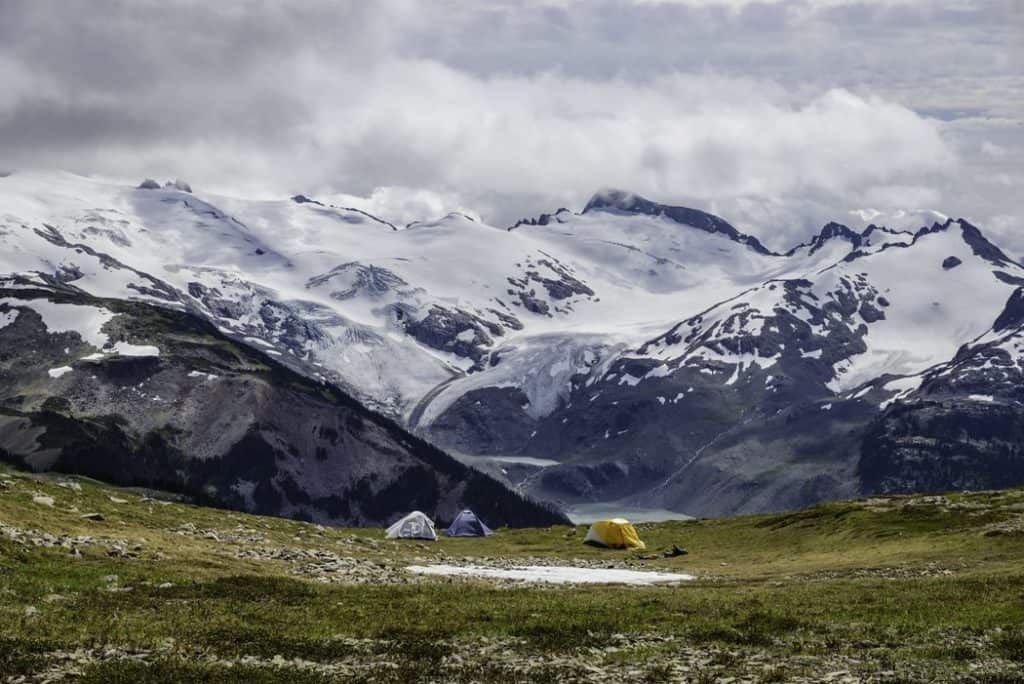Going Beyond “Pack-In, Pack-Out”: Minimizing Waste and Making a Positive Impact
We’ve all heard it as people who spend time enjoying nature… If you packed it in, you can pack it out.
October 2, 2019 | Genny Mae Rowed
We hope you were able to make it out to the Global Climate Strike last week along with so many others in Vancouver! We want to keep the momentum going – here are a few things you can do now to make an impact.

Keeping the places we love to play in clean and healthy includes bringing everything from those protein bar and sending chocolate wrappers to banana peels home to dispose of appropriately (yes, fruit peels are technically compostable, but organic waste attracts wildlife, and most of your food scraps are not items that can be found naturally in our forests, lakes, mountaintops, and other local climates). This is vital for our ecosystems’ health and keeps it enjoyable for everyone also spending time appreciating our beautiful playground, no matter where in the world they might be.

Most of our outdoor gear is made of plastic: from your jackets to your shoes to your backpack and your rope… We wouldn’t expect you to give up these tools – after all, they help connect us to our community and to the planet by enabling us to spend time in places we love. While it’s often difficult to avoid our plastic consumption in this area, there are many other ways to reduce and make a difference elsewhere.

Refuse – Reduce – Reuse – Repair – Repurpose – Refill – Rot (compost) – Recycle as a last resort:
The 7 R’s to Minimize Your Waste & Make a Positive Impact
We know it’s tough, but ditch the “it’s okay, it’s recyclable” mentality. Most of what is sent off to be recycled (especially plastics) isn’t actually recycled due to contamination and other complications. Recycling is great… in theory; however, the system is flawed. Instead of aiming to recycle, when shopping focus on items that can be reused in other areas of your life or composted (paper & cardboard) along with the rest of your food scraps (and so much more!). Keeping organic waste out of landfills reduces greenhouse gas emissions. If you live in the Vancouver area, you’re lucky – you have access to curbside compost pickup; you can look up the requirements by city in a quick Google search.
Learn more about the challenges with current recycling systems by checking out this great podcast from 99 Percent Invisible (and if that interests you, give this one a listen too).
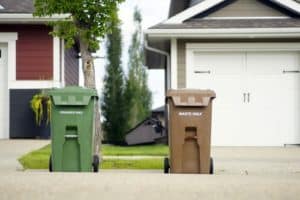
Take your reusable game to the next level
Most of us have our reusable water bottle and grocery bag game pretty solid by now (if you are still using single-use versions of either, this is one of the easiest ways for you to cut down on waste), but other small items go a long way as well! Here are some basics for you to get started on:
- Cotton bags for produce and some bulk items at your grocery store
EcoBags has a ton of different options, but you can find other brands locally at Bulk Barn, the Soap Dispensary, Nada, and online with a quick search
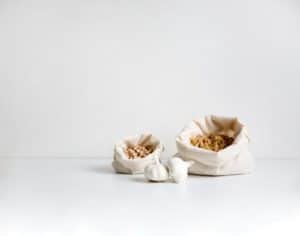
- Sealable containers for on-the-go food
We really like these from Onyx – Mason jars can also work really well if you’re not going too far (or if you’re taking food to work and need to toss it in the microwave, just make sure you remove that metal lid!). You can also get your hands on sealable silicone bags like Stasher – they’re super handy and highly packable!
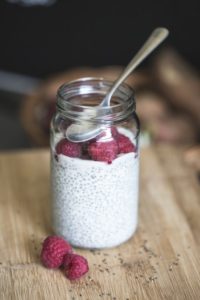
- Cutlery
Your camping cutlery will work great for this, just throw a set into your bag!
- Tumbler
Keep your drinks hotter/colder while keeping plastic out of landfills with a travel mug – you usually get a discount for bringing your own mug to coffee shops as well!
- Bamboo toothbrush
Okay so this isn’t quite on the topic of reusable…. But swapping to a bamboo toothbrush keeps those plastic brushes out of landfills (every single plastic toothbrush you’ve ever used still exists today…). You can even reuse the handles as plant labellers when they need to be retired!

- Mentstrual products
This one is for the people who menstruate! Swap out your tampons and pads for a menstrual cup, leak-proof underwear, and other alternatives. If your insta-ads look anything like mine, there are plenty of options hitting up your feeds!

Refill instead of getting a new container every time
Take advantage of the B.Y.O.C. (Bring Your Own Container) systems at Nada, The Soap Dispensary, and Bulk Barn (and the Refill Stop coming soon). This helps you reduce packaging waste and you only get what you need, minimizing food waste. If you’re in a pinch, you can also fill up those cotton bags in your grocery store’s bulk section.
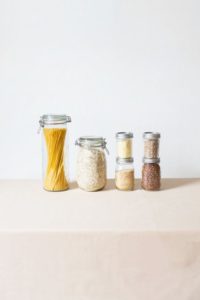
Make your own
Make your own lunch, protein bars, trail mix, power balls, cookies, chocolate (surprisingly not as hard as it may seem), or opt for more sustainable packaging like paper or cardboard as these can go right back to the earth where they came from. Skip the plastic wrap and store your food in reusable options like tupperware containers or the others mentioned above.
Buy used where possible
Go thrifting, search Craigslist, raid Facebook Marketplace, check out local gear swaps (but skip any personal protections for safety reasons…), and coordinate swaps with your friends! Keep your used gear (and other people’s) going strong and out of landfills. Repairs or tailoring are cheaper than buying a new garment, too!
Buy Local Food
Hit up your local farmer’s markets and local stores! Food heading to your major grocery stores usually travels much greater distances to get onto your plate. In that process, your food often can lose some nutritional value as they tend to be truck ripened. Support local businesses, reduce CO2 emissions, and keep your food nutrient dense and delicious.
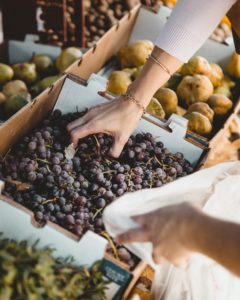
Vote with your dollar
Support and buy from companies who are doing work for the environment and really care! Check out a couple of our favourites:
- prAna
- Arc’teryx
- Patagonia (check out this blog post from them about the Climate Crisis, too)
Reduce your meat consumption
There’s no question that animal agriculture is a huge contributor to our greenhouse gas emissions as a society. Try going meatless at least one day a week!
Turn off your lights and appliances when not in use
Reduce your energy consumption by shutting the lights off when you leave a room, and turn off or unplug appliances when you don’t need them. Opt for renewable energy sources if it’s accessible to you!

Fly & Drive less
Ride your bike or take public transit when possible, carpool, and purchase carbon offsets to help reduce your impact (learn more about carbon offsets here).
Acknowledge
We are so fortunate to work, live, and play on the unceded Indigenous land of the Coast Salish peoples. These lands have been protected by them since long before we arrived; it’s our duty to respectfully listen to these people, and be good stewards to these places we all lovingly call our home.
We also acknowledge that we still have a lot to learn, and we can all strive to do better each day. It is up to each of us to consider our impact as we move through the world.

Vote
It’s no secret that Canada’s 2019 Federal election is coming up October 21, and it’s your chance to make a difference! Learn about the options for your local electives and your Federal government. Educate yourself and register to vote at elections.ca

If you forget your tumbler or your containers one day, or maybe you forgot to turn off the lights, don’t be hard on yourself! We’re all just doing our best. Our Earth doesn’t just need a couple people around the world doing things perfectly; it needs everyone doing their part in making life better, together.
What’s something you do to minimize your impact?


